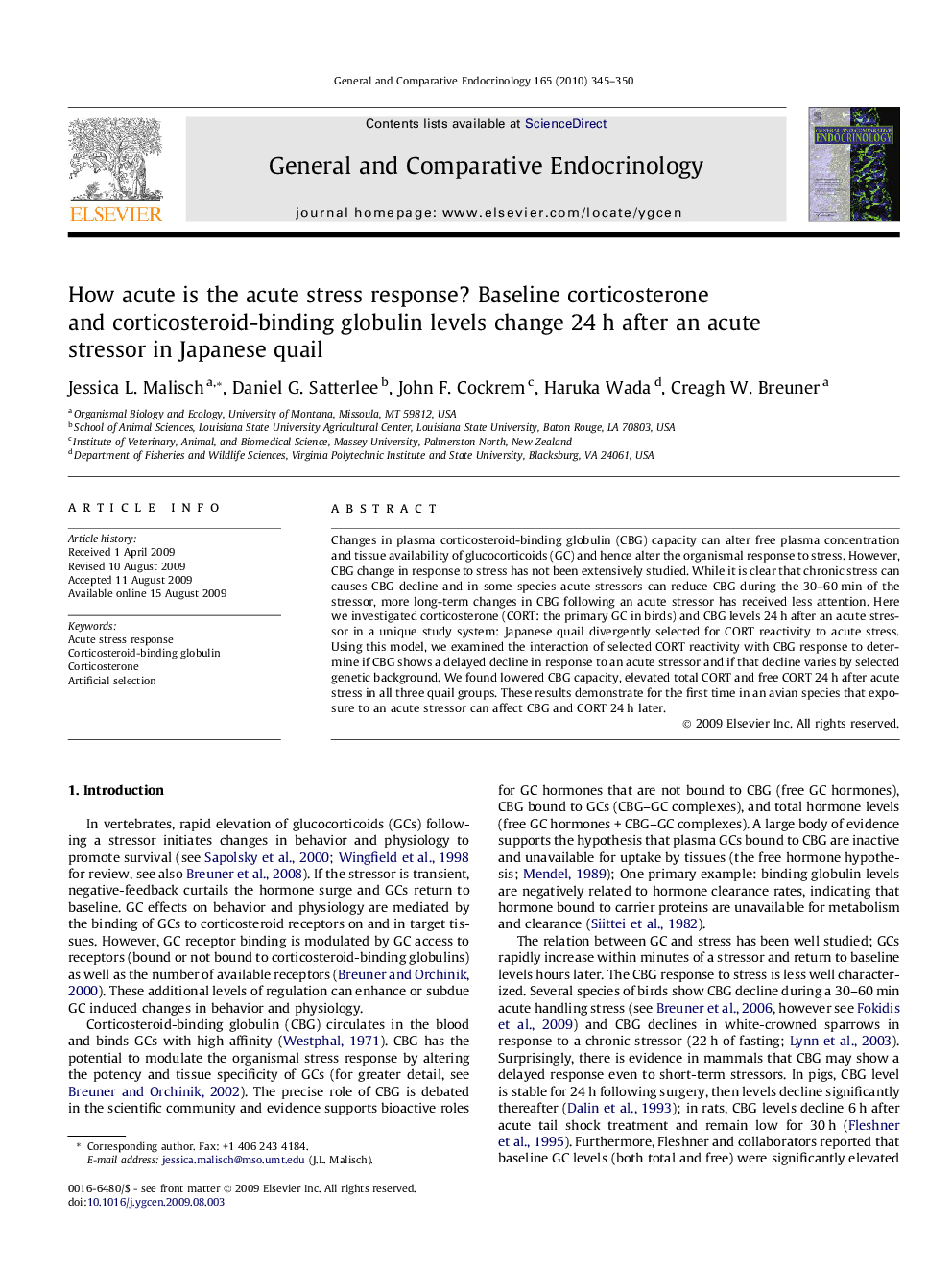| Article ID | Journal | Published Year | Pages | File Type |
|---|---|---|---|---|
| 2801462 | General and Comparative Endocrinology | 2010 | 6 Pages |
Changes in plasma corticosteroid-binding globulin (CBG) capacity can alter free plasma concentration and tissue availability of glucocorticoids (GC) and hence alter the organismal response to stress. However, CBG change in response to stress has not been extensively studied. While it is clear that chronic stress can causes CBG decline and in some species acute stressors can reduce CBG during the 30–60 min of the stressor, more long-term changes in CBG following an acute stressor has received less attention. Here we investigated corticosterone (CORT: the primary GC in birds) and CBG levels 24 h after an acute stressor in a unique study system: Japanese quail divergently selected for CORT reactivity to acute stress. Using this model, we examined the interaction of selected CORT reactivity with CBG response to determine if CBG shows a delayed decline in response to an acute stressor and if that decline varies by selected genetic background. We found lowered CBG capacity, elevated total CORT and free CORT 24 h after acute stress in all three quail groups. These results demonstrate for the first time in an avian species that exposure to an acute stressor can affect CBG and CORT 24 h later.
